January 15, 2025: Group wants Albemarle to support efforts to ban spread of sewage sludge; Albemarle seeks input on conversion of tennis courts for pickleball
Plus: Three Constitutional amendments have passed the House of Delegates
Somehow the third of five Wednesdays of January 2025 has arrived, and yet January 15 cannot be referred to as an Ides as that happened on the 13th of this month. On the Roman calendar, the 15th of March, May, July, and October would have that designation. This is Charlottesville Community Engagement and none of that strictly matters. I’m Sean Tubbs, and I thought you might want to know anyway.
In today’s installment:
Three amendments to Virginia’s constitution have been approved by the House of Delegates
Albemarle County wants feedback on a proposal to convert the remaining tennis courts at Darden Towe for pickleball
An area nonprofit committed to healthy aging has appointed a new CEO
CvilleBioHub has entered into a biotechnology collaboration with multiple partners across Virginia
The Albemarle Planning Commission retains two top UVA officials as its leadership for 2025
A trio of Albemarle residents tell the Planning Commission they want the county to ban biosolids, a power no Virginia locality has due to the Dillon Rule
First-shout: Heaphy to address ACHS and JMRL
Every year, the Albemarle Charlottesville Historical Society partners with the Jefferson Madison Regional Library for an Annual Membership Program. The speaker this time around is Timothy Heaphy, the lead investigator into both the violence in Charlottesville in 2017 and at the US Capitol on January 6, 2021. He’ll discuss his book Harbingers with Ian Solomon, Dean of UVA’s Frank Batten School of Leadership & Public Policy.
Harbingers shares what Heaphy saw and came to understand about what those events say about the state of American democracy. He examines how and why they took place with the hope that understanding the contexts of these events will be a crucial and helpful step toward avoiding similar episodes of political violence in the years ahead.
The investigations Heaphy led created a historic record for today as well as future generations. The event begins at 5 p.m. in the Martin Luther King Performing Arts Center at Charlottesville High School. Register for the event here.
Legislative check-in: Three constitutional amendments including “right to marry” pass House of Delegates
There is a challenge to covering a legislature remotely, but Charlottesville Community Engagement seeks to capture what it can. Today would have been the first day of the second week, but there have been delays related to the shutdown of Richmond’s water treatment plant.
One way to take a measure of the activity of the General Assembly is to look at the statistics page on the Virginia Legislative Information System. As of 9 a.m. this morning, there are a total of 1,912 bills bending in both the House of Delegates and the Senate of Virginia. A total of 407 bills have failed, but these are all ones continued from the last session.
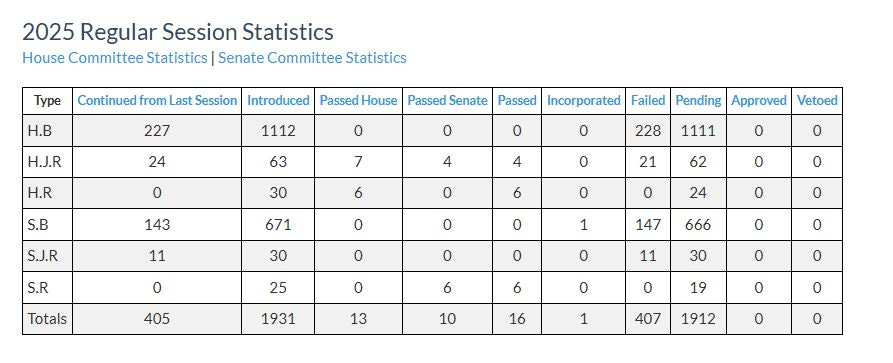
So far, a total of seven House Joint Resolutions have passed the House of Delegates and three of these are constitutional amendments.
HJ1 would add reproductive freedom to the Constitution. The House of Delegates voted 51 to 48 on January 14 to move the bill forward.
HJ2 would add language to the session on voter qualifications to state that “every person who meets the qualifications shall have the fundamental right to vote in the Commonwealth” and remove the Governor’s role in granting rights back to those who have been convicted of a felony. This passed the House of Delegates on January 14 on a 55 to 44 vote.
HJ9 would repeal the prohibition on same-sex marriage under Virginia law and make the right to marry anyoneover the age of 18. This passed on a 58 to 35 vote with two abstentions. An additional five delegates did not vote.
The other four are related to the operations of the General Assembly for this session. These also passed the Senate and were the only action taken on January 8.
So far, all of the other bills are waiting for action by committee and that means a lot of subcommittee meetings. On Thursday, the House Health and Human Services Committee will meet at 8:30 a.m. One item on their agenda is HB1716 from Delegate Cia Price (D-85) which would establish a right to contraception in Virginia code.
The Public Safety Subcommittee of the House of Delegates Public Safety Committee meeting will meet at 8 a.m. Their agenda has several bills of note.
HB1746 from Delegate N. Baxter Ennis (R-89) would add dispatchers and animal control officers to the definition of “public safety officer” to allow them to qualify for the Commonwealth Public Safety Medal of Valor.
HB1894 from Delegate Holly Seibold (D-12) would require heating and cooling in all state correctional facilities to maintain a temperature range between 65F and 80F.
HB2033 from Delegate Shelly Simonds (D-70) would direct the Department of Criminal Services to create an online course on human trafficking to be offered by the Virginia Alcoholic Beverage Control Authority. The course would be to train employees how to recognize the signs and report suspected instances.
HB2105 from Delegate Hillary Pugh Kent (R-67) would require sheriffs, jail superintendents, and other jail administrators to designate a local law enforcement agency to investigate acts of violence within their facility.
Stay tuned for more information on pending bills. Is there something in particular you’d like to track? I look at everything and part of the reason I do this is to share information.
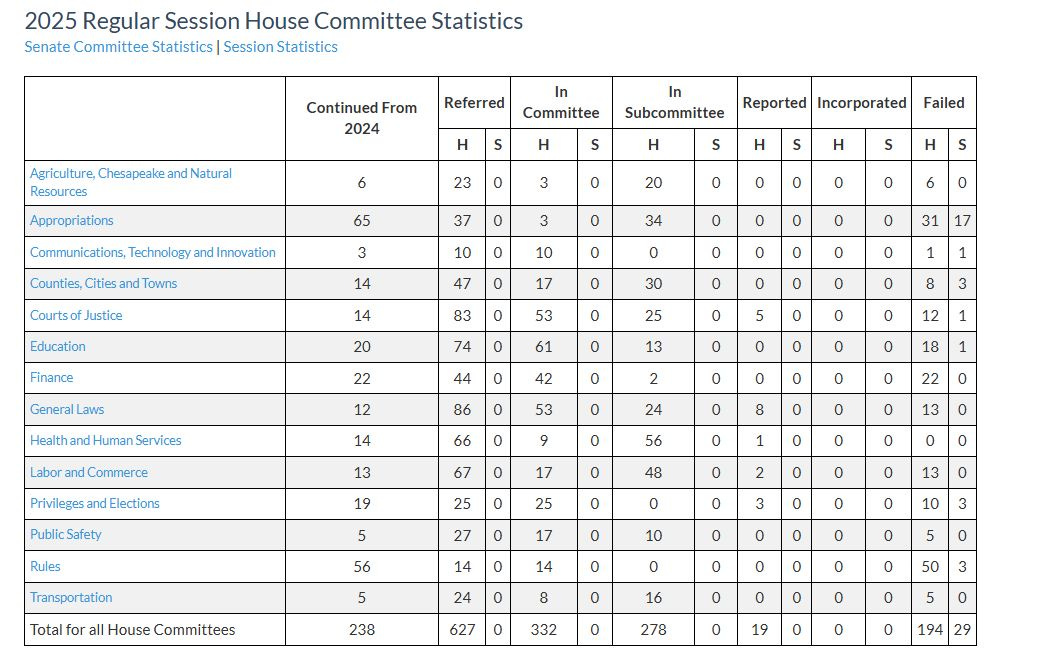
Albemarle seeks input on future of Darden Towe tennis courts
Across the United States, municipal parks and recreation departments have seen the increased popularity of pickleball and a need to provide additional space to accommodate a growing number of players.
In 2021, an advisory committee that oversees Darden Towe Park unanimously voted to convert two of the park’s four tennis courts for pickleball. A total of six courts were created.
“This decision was supported by the Central Virginia Pickleball Club, which raised $20,000 through community donations to fund the project,” reads a survey page on Albemarle County’s engagement website.
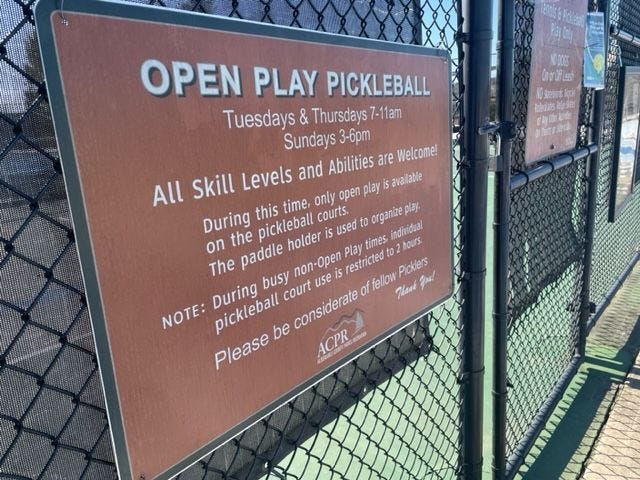
Albemarle County and Charlottesville jointly own Darden Towe Park and the advisory committee consists of two Supervisors and two City Councilors. The Supervisors are Bea LaPisto-Kirtley of the Rivanna District and Ned Gallaway of the Rio District. The councilors are Vice Mayor Brian Pinkston and Councilor Natalie Oschrin. The committee is now considering whether to keep the two remaining tennis courts or convert them to add more space for pickleball.
The survey asks what sports the respondent plays giving only tennis and pickleball as options. People are then asked to write down “thoughts about transitioning the existing tennis courts at Darden Towe to pickleball courts.”
Just before noon today, there were 312 responses, none of which are public. At 1:34 p.m there are 337 responses.
The Albemarle survey site does not state when the committee will make their decision and the county’s meeting calendar does not list any upcoming meetings for the committee. The county’s website also does not state which Supervisors are on the committee.
The survey website also states that the Albemarle Parks Foundation is involved. This group was created in 2023 “to enhance the well-being and vitality of our community by supporting the development, maintenance, and accessibility of parks and recreational spaces.”
That appears to include advocating for specific projects such as the addition of more pickleball courts at Darden Towe. Their website does not specifically removing the tennis courts but advocates for six more courts.
“The current courts see heavy use seven days a week, and there is a pressing need for additional courts,” reads the foundation’s website. “Twelve courts will help to alleviate court use congestion and also provide sufficient courts for the hosting of tournaments and other events that will draw people to the area.”
There is no date listed for when the Darden Towe Advisory Committee will make a decision.
JABA appoints new CEO
A nonprofit agency that promotes healthy aging in the Thomas Jefferson Planning District has selected a new leader.
Judith Selzer became the chief executive officer of the Jefferson Area Board for Aging (JABA) on Monday, succeeding the now retired Marta Keane.
“This is a transformative moment in the world of healthy aging, and I’m passionate about joining JABA where I will have the privilege of working with colleagues and volunteers to ensure everyone has the opportunity to live their healthiest, most empowered life,” Selzer said in a statement.
JABA was founded in 1975 and became a nonprofit in 1986. The agency raised $2.23 million in revenues in 2023 according to ProPublica.
Selzer was selected after a nationwide search according to JABA board chair Dick Gibson.
“[Selzer] comes to us with a 25 year career, mainly in the non-profit healthcare enterprise sector,” Gibson said. “She has spent her career to date helping others and making the world a better place to live.”
Before being hired as JABA’s CEO, Selzer has served in a variety of roles including a stint as the president and CEO of Planned Parenthood of Northern New England. She also has a coaching firm called Selzer360.
According to JABA’s 2023 annual report, a quarter of the metropolitan area’s population could be described as senior.
One of JABA’s program is a joint venture with the Thomas Jefferson Planning District Commission to increase access to public transportation. This is called the Partnership for Accessible Transportation Help, or PATH. Call 888-879-7379 if you’re looking for more information.
Sponsored message: Buy Local
Buying locally supports our neighbors and community members and makes a big impact for our local economy. Local businesses are more likely to reinvest in our community and their goods and services contribute to the unique character of our community.
Learn more about how you can support local business at ShowLocalLove.org and on social media:
CvilleBioHub to launch biotech accelerator as part of regional collaboration
One of Albemarle County’s target industries for future growth is the biotechnology sector and a nonprofit called CvilleBioHub has been nurturing efforts to create more jobs and attract more businesses.
Now the agency has announced the receipt of $4.3 million from an organization called GO Virginia to work with the University of Virginia to create a laboratory accelerator at the North Fork Discovery Park.
“GO Virginia’s investment in CvilleBioHub will enable a significant expansion of the biotech industry in the Charlottesville region,” said Nikki Hastings, CvilleBioHub’s executive director in a press release sent out Tuesday. “We are so excited to initiate and lead this project following years of strengthening the regional ecosystem.”
The grant is supported with a $300,000 match from the Albemarle Economic Development Authority. UVA is providing 6,500 square feet of space at North Fork for a three-year rent of $750,000. An additional $100,000 comes from the UVA Innovates initiative and the City of Charlottesville contributed $75,000.
“The total project funding exceeds $7.5 million with additional support from private donors and local economic development entities in Albemarle County and the City of Charlottesville,” states another section of the announcement.
The accelerator will also complement the Manning Institute of Biotechnology which is under construction at UVA’s Fontaine Research Park. Paul Manning called the additional space a “pivotal development” in the industry.
“This initiative will create a dynamic environment for life sciences companies to thrive, accelerating innovation and commercialization,” Manning said in the release.
The award to CvilleBioHub is one of three made across the state as part of Project VITAL with VITAL standing for Virginia Innovations and Technology Advancements in Life Sciences.
Missel to remain chair of Albemarle Planning Commission
At the beginning of their first meeting of 2025, the Albemarle County Planning once again selected Fred Missel to serve as their chair. Missel is the director of development at the University of Virginia Foundation.
“I’m grateful to be a member of this commission, especially with the members that are here as well as staff and looking forward to closing out AC44 this year,” Missel said shortly after the vote.
AC44 is the county’s update of the Comprehensive Plan, a guiding document last adopted by the Board of Supervisors in 2015. Charlottesville Community Engagement owes readers many stories from previous work sessions with this being the most recent.
Commissioner Luis Carrazana is a top official in the Office of the University of Virginia Architect. He will also serve as vice chair for a second year.
Albemarle residents ask for more scrutiny on biosolids
It is a common practice in Virginia for wastewater utilities to sell or donate part of their leftover product for agricultural use.
“Sewage sludge is the solid, semisolid or liquid materials removed during the treatment of domestic sewage in a treatment facility,” reads the Virginia Department of Environmental Quality’s website on biosolids.
According to the DEQ website, sludge can only become biosolids after the material has been treated according to state and federal standards. On January 14, three Albemarle residents appeared before the Planning Commission to ask for tougher standards to ensure that what are called “forever chemicals” are not in the mix.
“As a native of Albemarle with red dirt under my nails and in my veins, I implore you to consider testing and monitoring for PFAS on land where biosolids have been previously applied in Albemarle County,” said John Watkins of Covesville.
Watkins claimed that new evidence is coming out that suggests the spreading of biosolids as fertilizer comes with health risks. Shawn Cossette of southern Albemarle said he was concerned about the effects on groundwater and called for a full ban in the county.
The final call came from Kim Swanson, a two-term member of the Albemarle County Service Authority from the Rio District. She asked for language in the Comprehensive Plan to address the county’s position on biosolids.
“A community which plans well and values water resources for all county residents will discourage land practices that can contaminate both groundwater supplies and source water for our treatment plants,” Swanson said.

Members of the Planning Commission do not always respond to comments from the public, but Commissioner Karen Firehock responded that the state of Virginia will not let any counties ban the practice.
“The only thing that we can do is, for example, there are conditions in which you can object to spreading of biosolids in inappropriate areas,” Firehock said. “One of those areas is in floodplains or areas that are used for active recreation.”
Firehock said she objected to a recent application in Albemarle County that was near an active canoe facility on the James River. She claimed that permit had been denied.
The DEQ has been managing biosolids since 2008 after the General Assembly transferred control from the Department of Health. Legislation in 2007 also required nutrient management plans for lands where biosolids are applied, introduced the idea of unannounced inspections, and required that all applicators are certified.
In this year’s General Assembly session, Delegate Chris Runion (R-35) has introduced a bill that would exempt institutions of higher education from any permit requirements for application on land it owns. HB2517 has not yet been referred to a committee.
Several speakers also addressed the Albemarle County Board of Supervisors today. More on that when this story goes to Information Charlottesville.
This is my first story on this topic in a long while. Here are some previous stories from Charlottesville Tomorrow.
Landowners concerned about dumping of D.C. sewage in Albemarle, Sean Tubbs, January 31, 2011
Sewage waste applied next to Carrsbrook neighborhood, Sean Tubbs, May 31, 2011
Albemarle Supervisors briefed on state biosolids rules, Sean Tubbs, July 6, 2011
Biosolids legislation not likely in coming General Assembly session, Sean Tubbs & Kurt Walters, December 21, 2011
As biosolids applications begin, practice still has champions and detractors, Ian Lamb, July 1, 2012
Company applies to spread biosolids on Scottsville farms, Emily Hays, November 12, 2018
Reading material for #793
MIT, Harvard experts disagree on the next steps for Cambridge’s multifamily zoning ordinance, Alyssa Chen, Cambridge Day, January 12, 2025
Louisa officials warn of gift card scam, CBS19 News, January 13, 2025
Grace & Glorie Head to the Stage, Nancy Gill, James Exchange (podcast), January 13, 2025
How to build a multilateral carbon pricing system: Balancing vision and reality, World Economic Forum, January 14, 2025
Charlottesville man struck, killed on Buckingham County highway, Reynolds Hutchins, Charlottesville Daily Progress (paywall), January 15, 2024
How many ways can you conclude with #793
More is more. Which is to say, the more I am producing, the more I want to produce. I remain independent due to a sense that if I worked for someone else, they would want me to cut back the level of content I produce. This has been a problem at most of the jobs I’ve had over years. I want to create and process as much as possible.
Managing this level of information can be tricky, but I’ve created spreadsheets to assist with the flow of stories. I began that system last February when I had the opportunity to create a radio program. This system will hopefully unlock the way to future collaborations that will spread the information further.
My work drive stems from being an absolute nerd in middle school and high school, attached to a computer as a way of communicating. Some of you may remember the old BBS systems where one could dial into someone else’s computer. I thought that was computer science, but I was really laying the foundation for a strange career in communications.
I am not sure that the long-term future holds, but I know the short-term will be continuing to finesse a process that for now results in an afternoon newsletter followed by posts to a website. I am hopeful to figure out a way to guarantee I can pay a copy-editor, and then I can hopefully find a copy-editor who can work to my schedule.
And on this day where I have to pay my quarterly estimated taxes, I’m still hopeful I can guarantee that I get paid! This is all a risk in a world where death is the only guaranteed outcome. While that may seem macabre, I use that fact as a motivator.
Now, it’s the end and I sort of like this new tradition of ending with a YouTube video. Today’s is a highlight real from a recent concert that supported JABA.




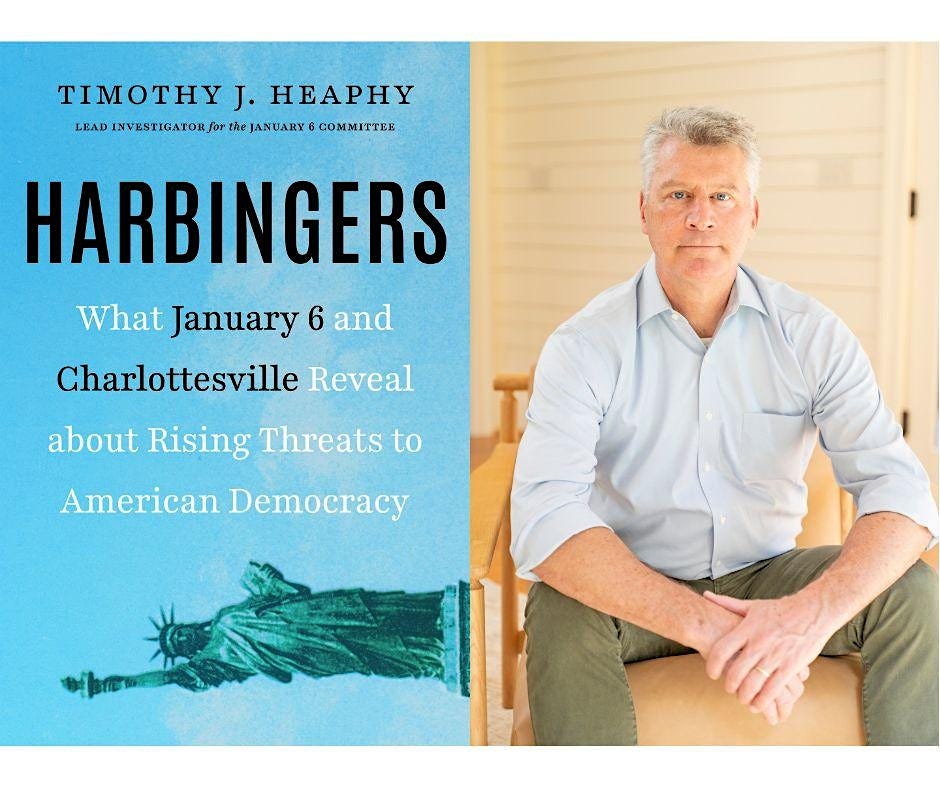
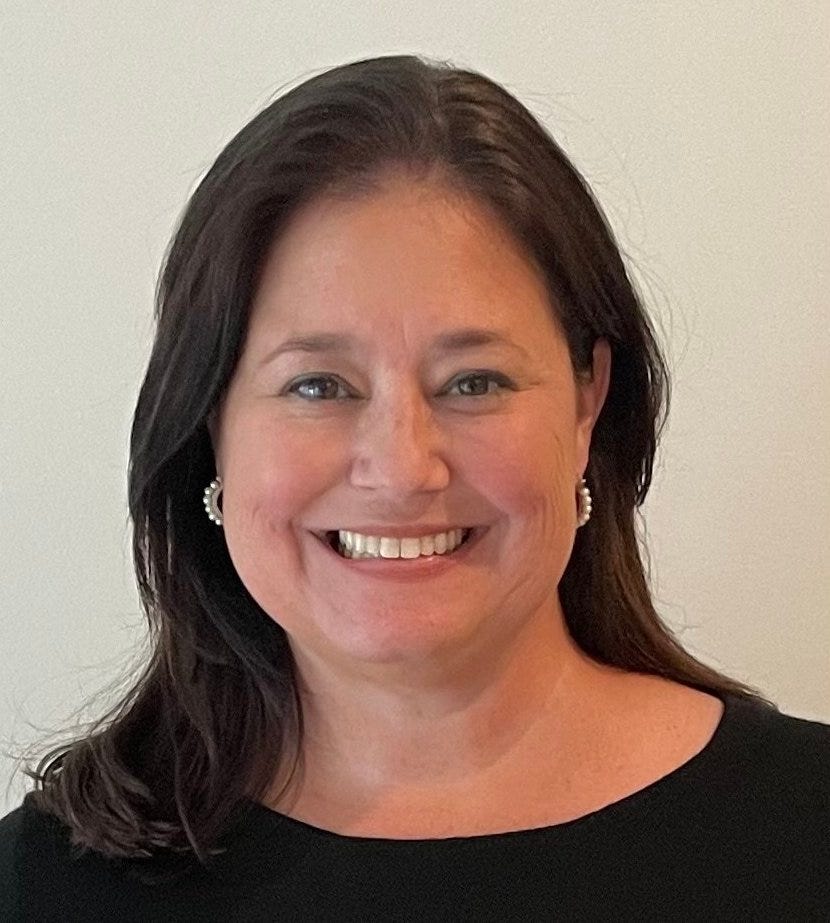

The version of this that went out initially misspelled the name of Shawn Cossette. I regret the error and have made the correction.